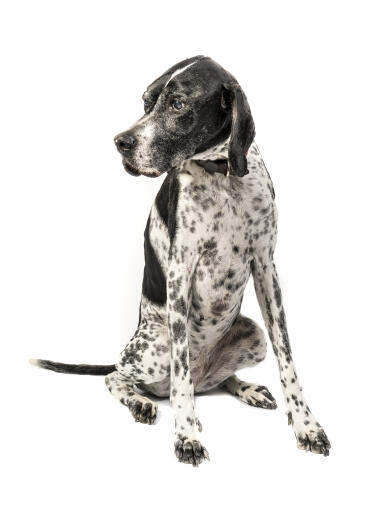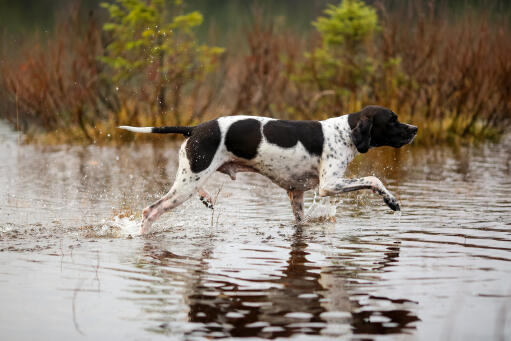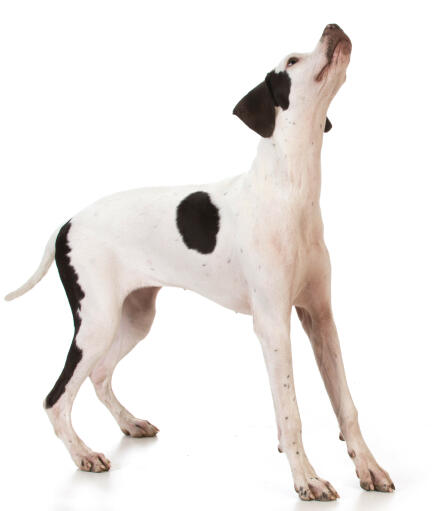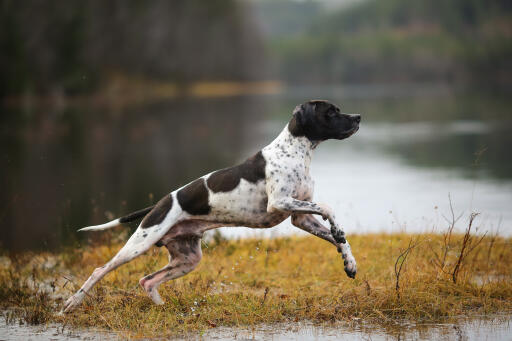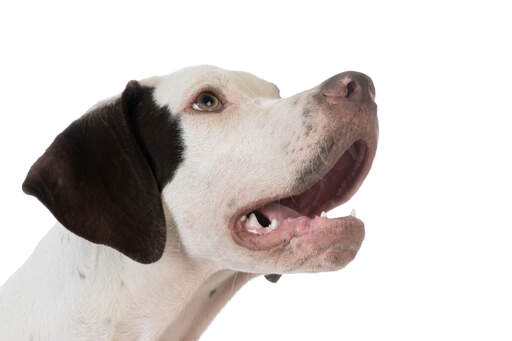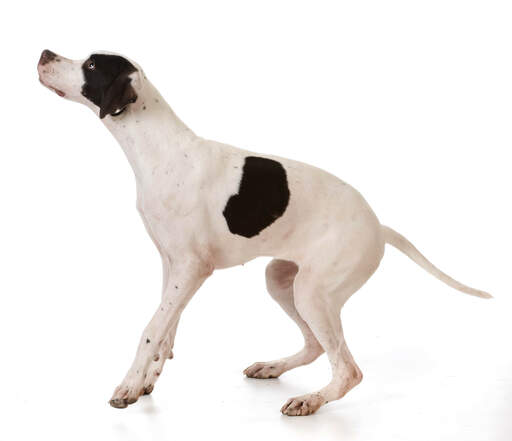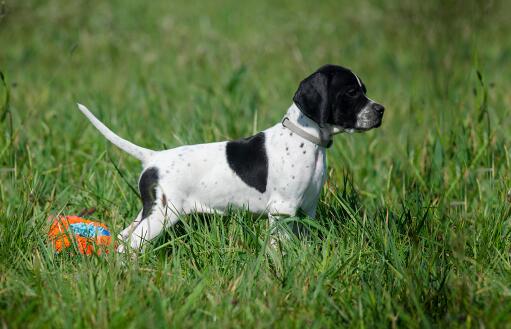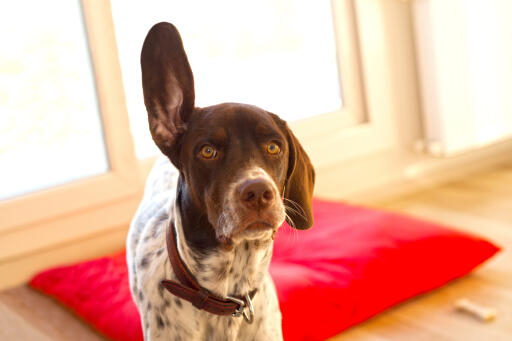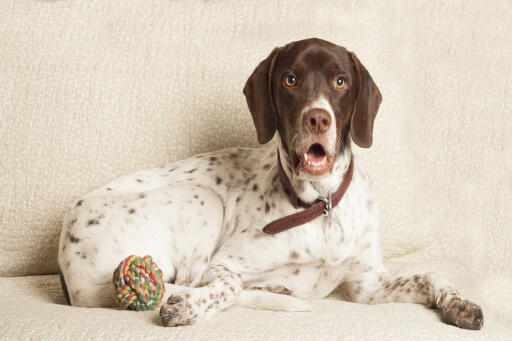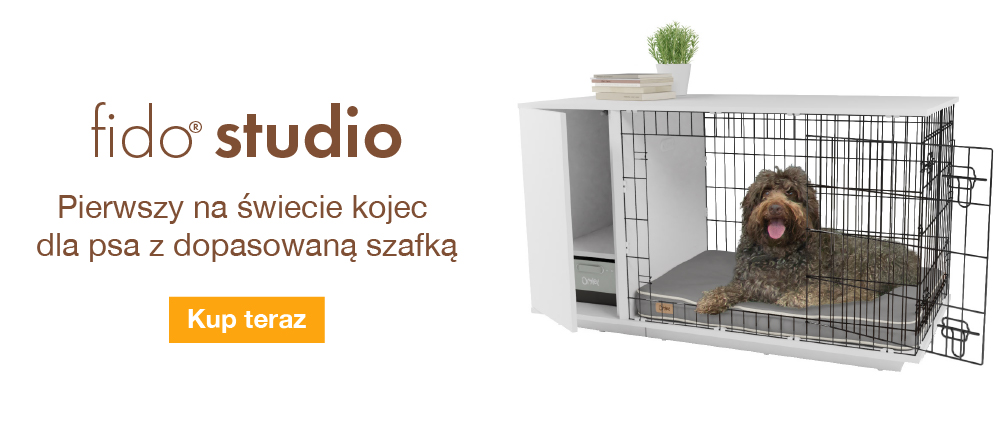Pointer Dogs









Historia i wygląd
The Pointer or English Pointer, dates back to the 17th century and was a result of Spanish Pointers being cross bred; probably with Foxhounds, Bloodhounds and Greyhounds to produce an athletic dog who would locate game and point it's location to the hunters. They would often point to hare, for the greyhounds to be released and hunt them. Later, Setter blood was added to even out the temperament of the breed and this produced an excellent working dog and great family companion. They do extremely well in competition, such as Pointing field trials.
Zachowanie i hodowla
The Pointer is loving, loyal and even tempered and well suited to a very active family. They are rarely aggressive and coexist well with other dogs, cats and children. They can be mischievous and need something to stimulate their minds if left alone for any periods of time, but are welcoming to strangers and will sound the alarm when someone is at the door. They will need socialising as puppies, but they are generally a positive and happy breed. If left for too long they will make their own entertainment, so crate training is advised to prevent damage to property.
Their training needs to be consistent, yet loving as they withdraw if harsh words are used. They were bred to think independently and as such, will take some time to 'click' and realise what you are asking them to do. They work best with food reward and positive reinforcement, although they can be stubborn. Using play and reward to train is best; exercising their minds as well as their bodies to keep them interested. Pointing instincts can take hold as young as 8 weeks. As working dogs, they need leadership and are well adapted to following commands, even though they can work independently. Their recall is excellent.
Pointers need lots of exercise. A walk around the block will do nothing to expel energy, they need to run. At least an hour a day, more if possible will keep them happy. Playing with other dogs will keep them entertained, but they need the chance to stretch their legs and sniff. Pointers tend to stand stock still and point when they sense something; it has been bred into them, so t's worth keeping an eye on where they are, as they won't move or make a sound when they have found something. Competition is a great way to keep them happy and exercise them and they make a wonderful jogging partner. Once they've had their walk, they will happily curl up next to you and sleep, a completely different dog to the one in the field; almost a couch potato. The more exercise you give it, the happier it will be.
The smooth coat is easy to keep clean and just requires the occasional groom with a stiff brush. They are average shedders.
They are pretty sturdy health wise, but sometimes Canine Hip Dysplasia, Epilepsy and skin conditions are seen in the breed. The low hanging ears means that sometimes they can develop ear problems, such as mites.
Temperament
Pointers possess a courageous and gentle temperament. They are loving of family, accepting of other animals and polite to strangers. They can be lively and boistrous so need regular training to keep them calm and sensible indoors. They can sometimes be too jumpy for smaller children or elderely people which should be taken into account when deciding which breed of dog is for you. Give them plenty of exercise and socialisation if you want a well rounded and satisfied dog.
Problemy ze zdrowiem
Health problems that may affect Pointers include canine hip dysplasia (CHD), elbow dysplasia, progressive retinal atrophy (PRA: degeneration of the retina which can lead to blindness), allergies, hypothyroidism and heart disease.
Informacje o rasie
- Popularność: Rasa powszechnie spotykana
- Długość życia: 12 - 14 years
- Waga: 23 - 34 kg
- Wysokość: 21 - 24"
- Bardzo rzadka rasa.: Nie
- Sierść: Niski
- Wymagania co do sierści: Raz w tygodniu
- Miasto lub gmina: Either
- Minimalny rozmiar domu: Duży dom
- Minimalny rozmiar ogrodu: Duży ogród
- Typ rasy: Pies myśliwski
- Rozmiar: L
- Poziom energii: wysoki
- Wymagane ćwiczenia: Ponad dwie godziny

